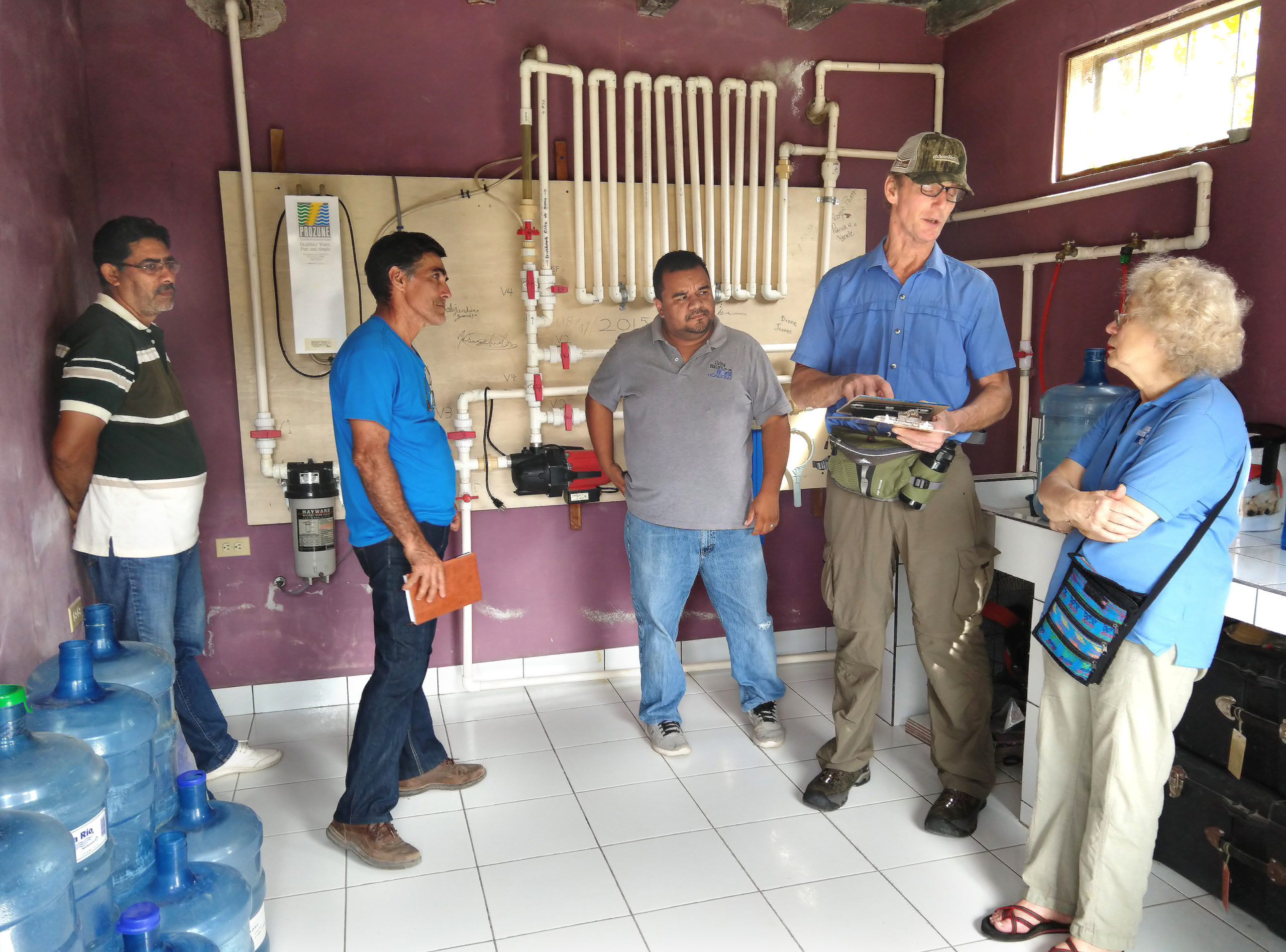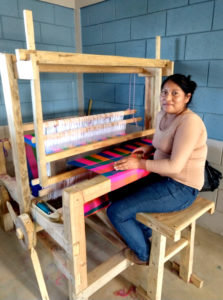Helping World In Need
Cooperstown Living Waters Team
Visits Plant, Builds Chicken House

Living Waters team from Cooperstown installed in 2019, as well as assisted with other projects. (Photos courtesy of Pam Lea)
By LIBBY CUDMORE • Special to www.AllOTSEGO.com

COOPERSTOWN – It’s easy to take clean water for granted in Upstate New York, but Susan Jones knows that’s not so everywhere.
“In Honduras, most of the water comes from mountain springs fed through plastic pipes,” said Jones. “But it’s often contaminated from wildlife and cattle, so people are drinking raw, not treated water.”
Jones, who has headed up the First Presbyterian Church’s chapter of the Living Waters for the World program, recently returned from the latest trip to Las Mercedes, where a crew installed an ozone water-purification system in 2019.
“We asked them if they could see an improvement in their health, and they always say ‘yes’,” she said. “They see fewer intestinal issues now because they’re drinking purified water.”
Since Jones founded the mission in 2012, it has installed six ozone water-purification systems, as well as worked with a host of other community activities designed to increase health, economic opportunities and education in rural communities in the mountains of Honduras.
“I’ve been a long-.time member of the Social Action Committee, and I was tasked with investigating mission opportunities,” she said. “I learned about Living Waters: They do these water-purification plants in 23 different countries.”
Living Waters, which just installed its 1,000th water purification system, provides the parts and the training to the missionaries, as well as training water committees responsible for maintaining the plants after the missionaries leave.
The system parts, travel and training for the local water committees costs $10,000, raised through a variety of fundraisers every year, including their annual ice cream social, dinners and coffee sales.
Jones, an art conservator, was joined by two other members of the congregation, Carefree Gardens’ Brent Leonard and veterinarian Pam Lea.
They arrived in San Pedro Sula at 3:30 a.m. on Valentine’s Day. “We spent a few days in Santa Bárbara, where we had several installations nearby,” she said. “We wanted to talk to the water committees, see how the systems were working, or what they might need.”
In all, the trio visited five communities to inspect the condition of their systems. “Some of them were running out of water, which was a concern. Global warming has hit Honduras hard; the dry season is longer, meaning there’s less water for agriculture.”
But many of the systems were working well, and as such, they did not bring any replacement parts on the trip.
In Las Mercedes, they also helped with three other community projects. “Of all the water surveys I’ve done, Las Mercedes was probably the poorest area we’d ever gone into,” she said. “Most people are trying to raise their families on between
$2 and $4 a day.”
Before she left for Honduras, Jones met with Rabbit Goody of Thistle Hill Weavers, Cherry Valley. “There is a weaving program nearby, and some of the women had expressed an interesting in learning to weave to make money,” she said. “Rabbit wrote us a check and told us to buy a loom for the village.”
School is free until the sixth grade, but to go to a high school, bus passes are $1 a day, plus uniforms and other expenses. To help offset some of those expenses, the visitors also helped build a community chicken farm.
“A piece of land had been donated that’s large enough to raise enough chickens to provide eggs for school lunches, but also to sell to raise money for those uniforms and bus passes.”
They also worked with Chispa Project, which sponsored a book fair at each school and created five “mobile libraries.”
“Each school gets five backpacks with 30 books in them,” she said. “They can rotate the backpacks through the schools.”
They also sat and interviewed 18 of the village’s 23 middle and high school students about possible sponsorships and tuition assistances. “They all wanted to finish high school and go to college,” she said.
“They wanted to be doctors, nurses, engineers, but without outside help, the possibility of them achieving that is very small.”

